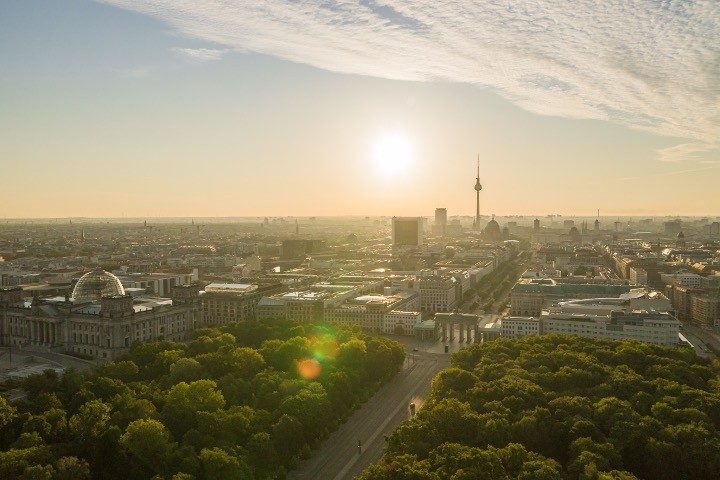
A local Berlin referendum that would have radically advanced the German capital’s net-zero emissions goals failed to gain the number of votes needed to pass a sweeping revision to the city’s Climate Protection and Energy Transition Act. The revision would have altered Berlin’s plan to become carbon neutral by 2045 to achieve that goal by 2030.
A small majority of those voting actually supported the unrealistic referendum, with 50.9 percent supporting the radical shift in climate goals. However, in order to pass, the referendum would also have needed a quorum of at least 25 percent of eligible voters. While 442,000 voters voted in favor of the changes, to pass the 25 percent threshold, over 600,000 votes would have been needed.
Close to 65 percent of eligible voters in Berlin chose to enjoy their Sunday rather than vote for or against the nonsensical new measure.
Climate radicals were, of course, upset by the referendum’s failure, but vowed to keep on fighting.
“A majority [voted for] #Berlin2030 & still it’s not enough. This is not only tough for the referendum, but for everyone who should be able to rely on climate protection finally getting started. We fight uphill. But even after today one thing is clear: we will continue to fight,” tweeted climate activist Luisa Neubauer.
The climate activist group Berlin 2030, which was largely responsible for the referendum, merely thanked supporters on its website: “Thank you for 442,210 [votes].”
Not only would the updated law have advanced the city’s net-zero emissions goals, it would have made those goals obligations. If the city had fallen short of meeting its emission targets, it would have been required to explain exactly why and how they intended to address emissions cuts moving forward.
In order to meet the 2030 emissions obligations, Berlin would have had to reduce carbon emissions by 70 percent by 2025 and 95 percent by 2030 (compared to 1990 levels).
In Berlin, and throughout Germany for that matter, 80 percent of energy still comes from fossil fuel sources. Even the “greenest” of politicians in Germany doubted that such a conversion to so-called renewable sources such as wind and solar could be completed in just seven years.
Berlin’s mayor, Franziska Giffey, noted that the referendum’s failure “shows that the majority of Berliners also see that the demands of the referendum could not have been implemented — not even if they were cast into law.”
Earlier in the week, Giffey was even more frank, saying clearly that it would not “be possible for Berlin to be climate neutral by 2030.”
“People have to be told this clearly: everything else is nonsense,” the mayor said.
Of course, the city’s radical new climate agenda would be given a boost if a surreptitious plan by some federal lawmakers had moved forward. That plan would have banned all new fossil fuel powered heating systems beginning in 2024, but a leaked draft of that legislation caused a rift in the nation’s left-wing coalition government. The sides involved are scheduled to meet today in a bid to resolve the matter.
Some Berlin politicians claimed that the result showed that while Berliners were concerned about the climate, that didn’t mean they would simply vote for empty promises.
“Berlin says yes to climate protection — but says no to false promises,” said Stefan Evers of the Christian Democratic Union (CDU). The CDU is considered a center-right party in Germany. Evers added that the climate “wouldn’t have been helped with unattainable goals and also not with an unaffordable law.”
But false promises — along with mainly false science — are all the climate cult has. Never mind that nearly every person in a position to know said that carbon neutral by 2030 was a fantasy — the climate religion wanted a victory.
But even the far-left city of Berlin is not willing to grant such a victory — at least yet.




